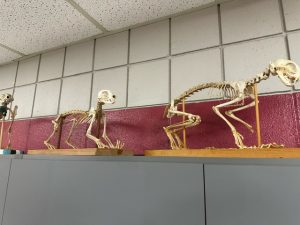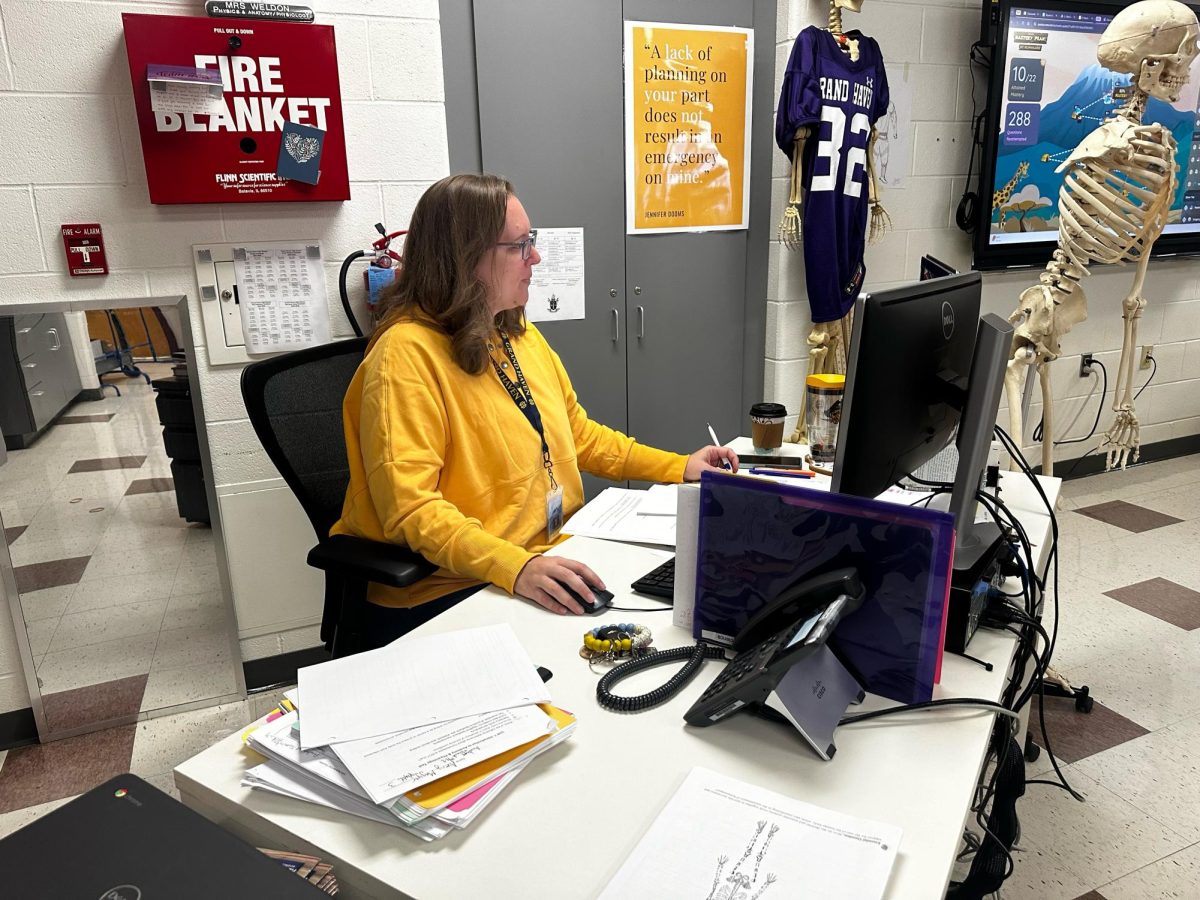As the world of high school education progresses, demand for Advanced Placement classes escalates. One educator at the forefront of this movement is Marcella Weldon, the anatomy teacher at Grand Haven High School. Weldon’s devotion to her subject to be recognized as an AP course drives her to advocate for the elevation of the anatomy curriculum and to provide her students with opportunities for learning and success.
Weldon’s motivation to transform anatomy into an AP class stems from the demanding nature of the curriculum. For her, it’s essential that the course reflects the intensity of the subject matter and prepares students for future academic challenges. “It’s a lot of memorization and it’s equivalent to the workload of other AP science classes,” Weldon said.
Throughout the year, anatomy students engage in multiple dissections, including the eye, brain, heart, lungs and trachea, culminating in a comprehensive cat dissection.
“These are big, cumulative projects that require significant depth of understanding,”

Weldon said. The exhaustive hands-on experience mirrors the level of rigor students can expect in college.
“The sheer amount of content in anatomy is equivalent, I think, to learning another language because it’s so rooted in Latin and Greek,” Weldon said. The rigorous course provides students with the necessary skills for success in science and medicine.
Weldon believes that an AP designation would provide considerable academic and personal benefits for her students, many of which are high achievers who find the demands of anatomy challenging compared to previous classes.
“Every semester, I have students who have never not gotten an A suddenly struggling,” Weldon said. “That change in content, depth and width reflects the change from high school to college science.”
With the resources available for AP courses, students would gain access to additional support materials, like practice problems and instructional videos. “With access to those, students would pick up the material much quicker,” Weldon said.
However, Weldon has had challenges with her endeavor.
“The AP board wants to ensure that there’s enough interest from students and that colleges are willing to grant credit,” Weldon said. The AP board would need to collaborate with college science department heads to validate the difficulty of the proposed curriculum.
Demonstrating that her course meets AP standards is crucial. “I want to show colleges that my curriculum aligns with theirs and ensure that students are learning comparable material,” Weldon said.
Weldon has received overwhelmingly positive feedback from her students on the prospect of AP status for anatomy.
“They’re already in AP classes and they study more in anatomy than in their other courses,” Weldon said.
To advance her initiative, Weldon has contacted the AP board to express her interest and get help. “I filled out my name on the list, but communication isn’t the best,” Weldon said. Nevertheless, her unwavering commitment remains as she navigates the approval process.
Weldon asserts that understanding human anatomy is vital, regardless of future career. “You have a human body; you should know how it works,” Weldon said. This knowledge not only prepares students for careers in science and medicine but also as patients who can engage confidently with healthcare professionals.
As she continues this journey, Weldon’s passion for teaching and commitment to student success shine through, paving the way for a transformative educational experience at Grand Haven High School.
“I love that there’s awareness and it’s out there and people want it to happen,” Weldon said. “I think it will benefit the school as a whole.”

